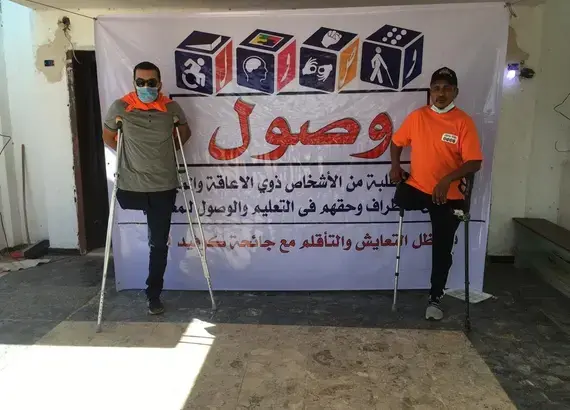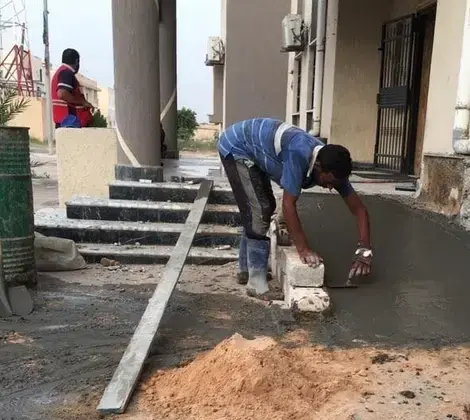
Success Story
Libyan Universities and Municipal Governments Increase Accessibility in Response to “Access” Campaign
Since 2019, the National Democratic Institute (NDI) has partnered with the “Access” (Wusool in Arabic) campaign, a coalition of disabled persons organizations (DPOs) across Libya focused on building support for persons with disabilities (PWDs). The campaign not only works on infrastructure improvements, but also targeted outreach and administrative support at higher education institutions as PWDs pursue their degrees.
For several months, campaign members, with NDI’s support, have met with the Ministry of Education to discuss the campaign’s goals and consider actions which the ministry could take in support of these aims. After a series of meetings with advisors to the Minister, the ministry issued a decree on July 8 incorporating many of the campaign’s proposed goals. Specifically, the decree calls for the creation of special offices for PWDs within universities to be responsible for outreach to prospective students and support for those currently enrolled. The decree also calls on university presidents to prepare buildings to be accessible to students with disabilities.

On October 10, “Access” campaign members hosted an event in Zawiya to raise awareness of their campaign’s goals and the issues faced by Libyans with disabilities. The event highlighted the need to continue applying pressure on local decision makers to implement necessary accessibility modifications in public universities, in line with the Ministry of Education’s decree. During the event, titled “Return to Universities,” representatives from the Ministry of Education pledged continued cooperation with the campaign in implementing the decree in all institutions of higher education.
Decision-makers from the House of Representatives, the High State Council, the Dean of the University of Zawiya, members of the Zawiya municipality, and civil society organizations held a discussion and planning session during the event. As a result, on October 16, campaign members oversaw the construction of a ramp at the entrance of the Zawiya municipal council building and witnessed their advocacy work come to fruition. The campaign’s efforts will now allow PWDs to access the Zawiya municipality buildings easily, without any obstacles.
“Access” campaigners have also adapted to COVID-19 by advocating for accessibility not only at universities (which are temporarily closed), but also at businesses, medical facilities, and public buildings. This strategy has successfully seen ramps and elevators installed at several banks and pharmacies in Benghazi, Bani Walid, and Ajdabia. Additionally, in Abu Salim a campaign member met with the mayor and deputy mayor, who pledged to support the campaign by making any new building accessible for PWDs, including public buildings currently under repair, and by launching an awareness campaign in the community to encourage local businesses to make their stores accessible.
Following these advances, campaign members will continue to push for full implementation of the decree across the country, advocating directly with local governments and working with the Ministry of Education and university administrations to provide support, expertise and oversight.
NDI's engagement in Libya is implemented with support from the United States Agency for International Development (USAID) through the Consortium for Elections and Political Process Strengthening (CEPPS).



